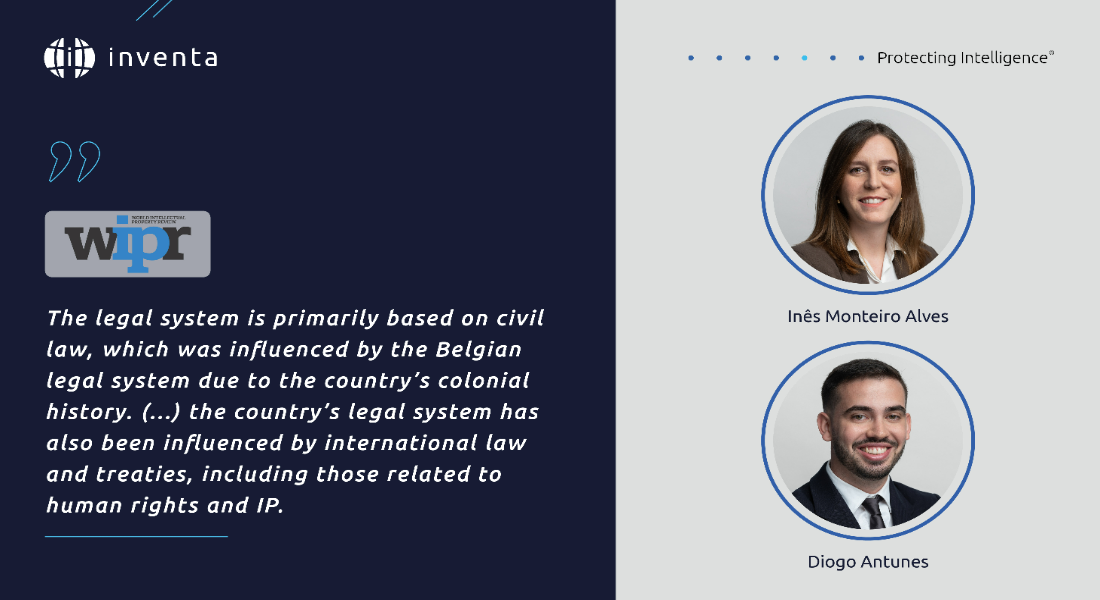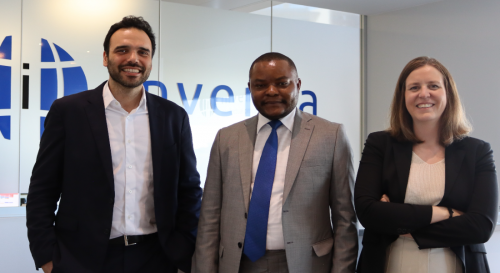
Protecting trademarks in DRC
The Democratic Republic of Congo is one of the largest countries in Africa in terms of land area and population. Despite challenges, it has significant potential for economic growth and development. Efforts to improve governance, invest in infrastructure, promote diversification, harness the country’s natural resources more sustainably and update IP legislation could contribute to unlocking this potential and positioning DRC as one of Africa’s leading economies.
DRC relies heavily on imports to meet its domestic consumption needs. Despite having abundant natural resources, the country faces challenges in developing its manufacturing and agricultural sectors to produce goods locally. As a result, DRC imports a wide range of products, including consumer goods, machinery, equipment, and food items, to meet the demands of its population.
Given that DRC depends mainly on imports, it is crucial for stakeholders to obtain IP registration in the country.
Legal framework for protecting trademarks
The legal system is primarily based on civil law, which was influenced by the Belgian legal system due to the country’s colonial history. Apart from that, the country’s legal system has also been influenced by international law and treaties, including those related to human rights and IP.
In terms of international agreements related to IP, DRC is only a member of the Paris Convention (since 1975) and the TRIPS Agreement (since 1997). The absence of membership to other international agreements related to IP contributes to IP laws in the country being outdated. DRC is not a member of the Madrid System or any regional agreement in Africa, such as the African Regional Intellectual Property Organization (ARIPO) or the African Organization of Intellectual Property (OAPI).
The legal framework for the protection of trademarks is primarily governed by Law No. 82-001 of 1982, on Industrial Property, which establishes the foundation for trademark registration, protection, and enforcement within the country. No updates to the law have been enacted, and for this reason, it is outdated. Since its enactment, there have been significant developments in international standards and agreements related to IP rights. The IP landscape has also evolved rapidly with advancements in technology, particularly in areas such as digital goods, e-commerce and online infringement, and the law does not adequately address these challenges. In addition, the law lacks provisions that facilitate international cooperation and enforcement of IP rights.
Registration of trademarks
The registration process of a trademark in DRC does not differ much from the process in other jurisdictions worldwide, except that the proceeding does not include a formal opposition phase as part of its procedure. Even though Chapter 2 of Law No. 82-001 expressly mentions “Filing, registration and publication of marks”, the opposition proceeding, timelines and requirements are not foreseen within the law.
Once a trademark application meets the formal and substantial requirements for registration, there is not a specified period during which third parties can formally oppose the registration before or after this is granted.
The law does allow, however, for the cancellation of a trademark post-registration if any interested party or the Public Prosecutor’s Office can demonstrate valid reasons under DRC law that the trademark should not have been registered. These reasons could include absolute grounds for refusal, such as the trademark not being distinctive, being deceptive, or violating public order, and relative grounds for refusal, in which interests of third parties are included, such as the risk of confusion between trademarks.
Any interested party may challenge the registration of a trademark in DRC after it has been registered before the Court. The proceedings are conducted in French, which is the official language of the judiciary system.
The DRC judiciary system faces, however, several challenges that hinder its efficiency. It suffers from chronic underfunding, leading to inadequate resources for courts, judges, and support staff. This results in delays in case processing, backlogs in court dockets, and limited access to justice for many citizens. Court proceedings are often slow, complex, and prone to adjournments, resulting in prolonged legal disputes and dissatisfaction among litigants.
The numerous challenges within the judiciary system often lead stakeholders to avoid resorting to the courts to resolve disputes. This is why seeking legal assistance from experts is crucial in navigating the complexities and challenges of the judiciary system in DRC. Legal professionals, such as experienced lawyers, can provide valuable guidance, representation, and support to individuals and businesses facing legal issues.
This article was originally published in the World Intellectual Property Review (WIPR) and featured the 2024 Issue 1 edition.
Lista de Territórios
Não existem resultados para a sua pesquisa.
- África
- África do Sul
- Angola
- Argélia
- Benin
- Botsuana
- Burkina Faso
- Burundi
- Cabo Verde
- Camarões
- Chade
- Comores
- Costa do Marfim
- Djibuti
- Egito
- Eritreia
- Eswatini (Suazilândia)
- Etiópia
- Gabão
- Gâmbia
- Gana
- Guiné
- Guiné-Bissau
- Guiné-Equatorial
- Lesoto
- Libéria
- Libia
- Madagáscar
- Maiote
- Malaui
- Máli
- Marrocos
- Maurícias
- Mauritânia
- Moçambique
- Namíbia
- Níger
- Nigéria
- Quénia
- República Centro-Africana
- República Democrática do Congo
- República do Congo
- Reunião
- Ruanda
- Saara Ocidental
- São Tomé e Principe
- Seicheles
- Senegal
- Serra Leoa
- Somália
- Sudão
- Sudão do Sul
- Tanzânia
- Togo
- Tunísia
- Uganda
- Zâmbia
- Zanzibar
- Zimbábue
- África (OAPI)
- África (ARIPO)
- Mais Territórios
- Macau
- Maldivas
- Portugal
- Timor Leste
- Marca da União Europeia (EUIPO)
- Marca Internacional (Sistema de Madrid)
- Patente Europeia (IEP)
- Tratado de Cooperação em matéria de Patentes (PCT)




